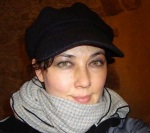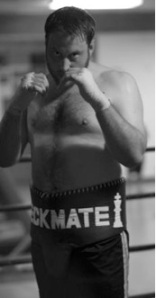by Kimberly Hollingsworth, AULA BA Student & Founder of Humanity Is Us
When will genocide matter? Does it have to be at our front door or happen to our families before we care enough to do something? That’s my tough question. I used to believe that if the Holocaust happened today, there would have been such a tumultuous uproar that we would have stopped it before six million people were collected and murdered within a span of six years. Today, I’m not so sure.
The genocide in Rwanda never should have happened in 1994. While the international community closed their eyes, 800,000 Tutsis were slaughtered in 100 days. A member of the nonpermanent United Nations Security Counsel, the Czech representative, declared at one point, “Rwanda is not a priority for the Czech government, but as a human being I cannot sit here and do nothing.”
I launched my anti-genocide organization Humanity Is Us on November 29, 2010. (See my previous article, “Conflict of Ethics: What Does Genocide Have to Do with Business?”) While drowning in website designs, templates, hosting, domains, hyperlinks and other web hosting lingo, I also struggled with state and federal requirements for the protection of my embryonic entity. A simple idea was turning into a complicated responsibility. An AULA faculty member introduced me to a social entrepreneur who emotes action and possesses the same fire in the belly against genocide and rape camps that I do.
Andrew McGregor and the Tiziano Project
In May 2007, while a student in the master’s program for journalism at the University of Southern California, Andrew McGregor found himself frustrated with the co-existence of global video-sharing and genocide: “How can there be a world with YouTube and undocumented atrocities at the same time?”
If the mainstream news had kept the acts of genocide on the nightly news, instead of allowing public interest or lack of comfort guide the headlines, the international public community of responsible citizens might have demanded immediate actions from their governments. Today, journalists have to worry about corporate responsibilities, self-preservation, media trends, competition, and universal bureaucracy. Accountability for the success of the business enterprise has created detachment from the original purpose of journalism. With a rush for headlines that grab viewers, journalists rush to report headlines without checking sources. As Andrew puts it, today’s news has become a “propaganda whore.” Sensationalism has replaced news that can make a difference in saving people’s lives.
With moral impulse, he took leave from USC, hired a lawyer, and organized a nonprofit public-benefit corporation, the Tiziano Project. The mission: “The Tiziano Project provides community members in conflict, post-conflict, and underreported regions with the equipment, training, and affiliations necessary to report their stories and improve their lives.” With limited funds, a few contacts, cameras, camcorders and a new idea for exposing crimes against humanity, Andrew left for Rwanda and commenced his quest to spread journalism.
Teaching Journalism to Change the World
Andrew joined forces with a friend, Thomas Rippe, to teach journalistic techniques at a local orphanage. An issue came up: since the Canadian government had already made arrangements to provide for these orphans for life, the orphans, ranging in age from twelve to thirty, lacked motivation to learn journalism.
Undaunted, the Tiziano Project then formed a collaboration with The German Development Company (DED), teaching radio techniques at a local youth house. It did not take long before the weekly radio program about genocide reconciliation aired on Voice of America, providing a trusted resource for updates and local information.
Andrew and Tom continued their traveling school of journalism between Rwanda and the Democratic Republic of the Congo (DRC). At refugee camps they shared writing, photo and video techniques, which empowered the locals and enabled collaborative efforts with the international community of professional journalists. Until that time, stifled voices were forced to wait for an outsider to speak on their behalf.
A week after Andrew left the DRC in 1998, violence broke out again. Within an hour, the refugees trained by Andrew and Tom were able to communicate with journalists, and CNN broke the story. “It was a turning point for us. When the story broke, it proved that the concept worked – it all worked. We had proof of the potential of the Tiziano Project.”
Today, the Tiziano Project is supported by a community of journalists, and the Tiziano Project team itself consists of journalists who have other jobs. It’s the calling, the purpose that keeps this team together. Eventually, the business plan requires funds for salaries so all participants can focus on their goal of keeping stories of atrocities in the mainstream news. I asked Andrew, “Why do you believe the Tiziano Project can help end genocide?” He explained, “It has to do with economics. Journalism can be helpful in creating jobs. Look at the child soldiers. The choices are limited: either you’re a slave or a soldier.”
Chessboxing and Advice for Students
Andrew, who stands six feet and almost ten inches tall and weighs 280 pounds, founded the L.A. Chessboxing club. The idea came from a poster he saw in Europe. Basically, chessboxing consists of eleven rounds (four minutes of chess, followed by three minutes of boxing), and starts and ends at the chessboard. First one to win by checkmate or a knockout is the winner. On February 27, 2010, Andrew claimed the title of U.S. Heavyweight Chessboxing Champion by checkmate in the fifth round.
Ironically, chessboxing helped Andrew build up his strength and his resolve to continue with his vocation. He also learned a valuable lesson about being there for others. It’s important to maintain a balance between personal life and causes, “Without investing in yourself first, you have nothing to give — to anyone.”
I asked Andrew for words of wisdom for the novice social entrepreneur. “Start as a student. Everyone helps students. They help because they know where you’re coming from and that you’re learning. If you’re Joe from a business/organization that no one knows, they don’t have a reference point.” Andrew also suggested having a long-term corporate strategy, “Start focused and with obtainable goals.” The last thing that he suggested, “Visually explain what you’re doing and make a chronological record of it. We were so focused on the work and mission that initially, we missed the opportunity for the potential business development.” It has been remedied.
Recently, the Tiziano Project won a $25,000 grant from a competition on Facebook and utilized it to showcase its product. It’s easier to gain funding when funders can see what their money is buying. After all, today everything is related to business.
 Guest Blogger Kimberly Hollingsworth is in the BA Business & Social Entrepreneurship program and Creative Writing program at AULA. She holds an associate’s degree from The American Academy of Dramatic Arts in New York and an ABA-approved certificate from UCLA Extension as a legal assistant in litigation. She is currently a senior legal assistant at an international law firm, a member of SAG, and a voting member of LAPA.
Guest Blogger Kimberly Hollingsworth is in the BA Business & Social Entrepreneurship program and Creative Writing program at AULA. She holds an associate’s degree from The American Academy of Dramatic Arts in New York and an ABA-approved certificate from UCLA Extension as a legal assistant in litigation. She is currently a senior legal assistant at an international law firm, a member of SAG, and a voting member of LAPA.


